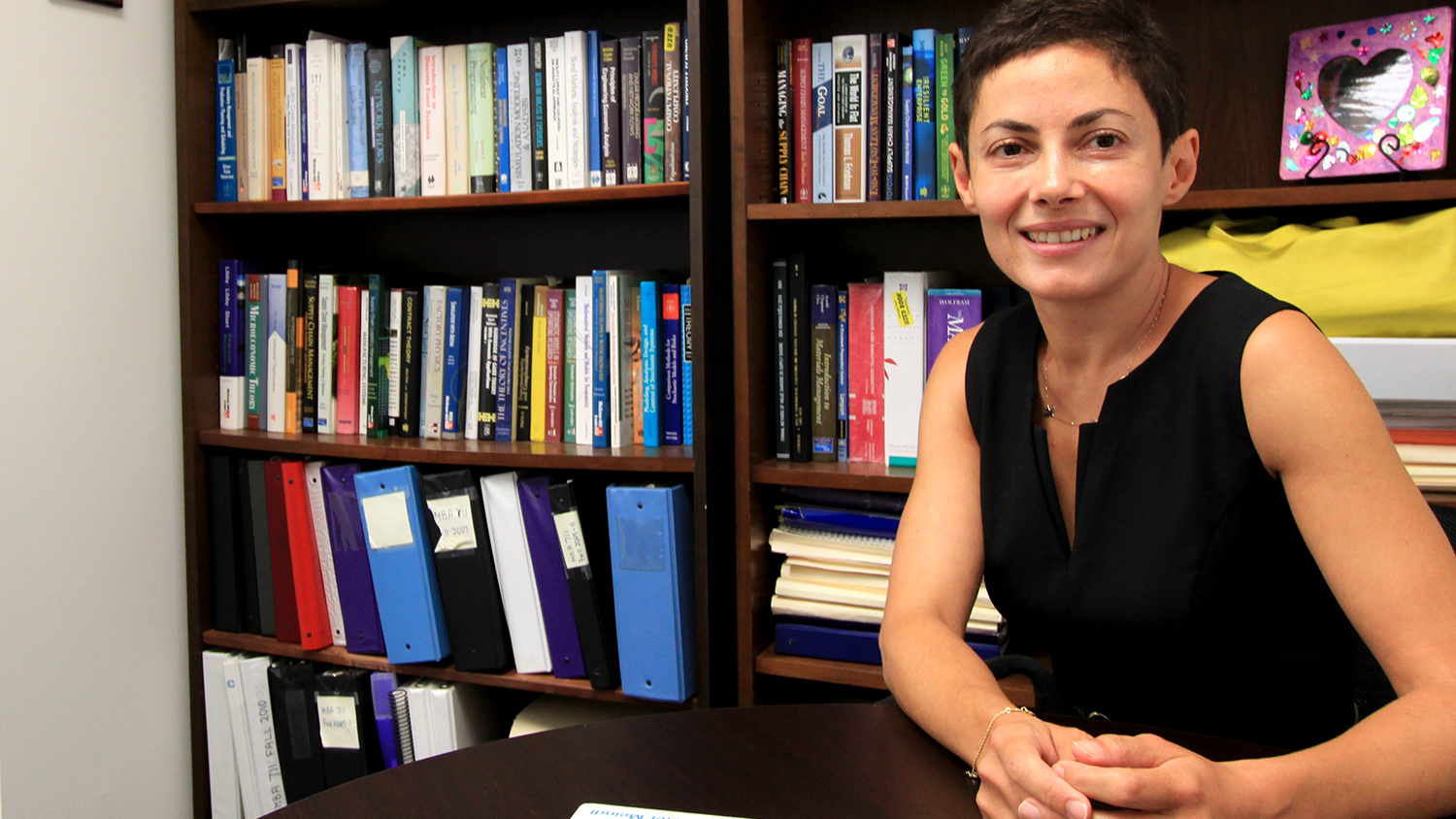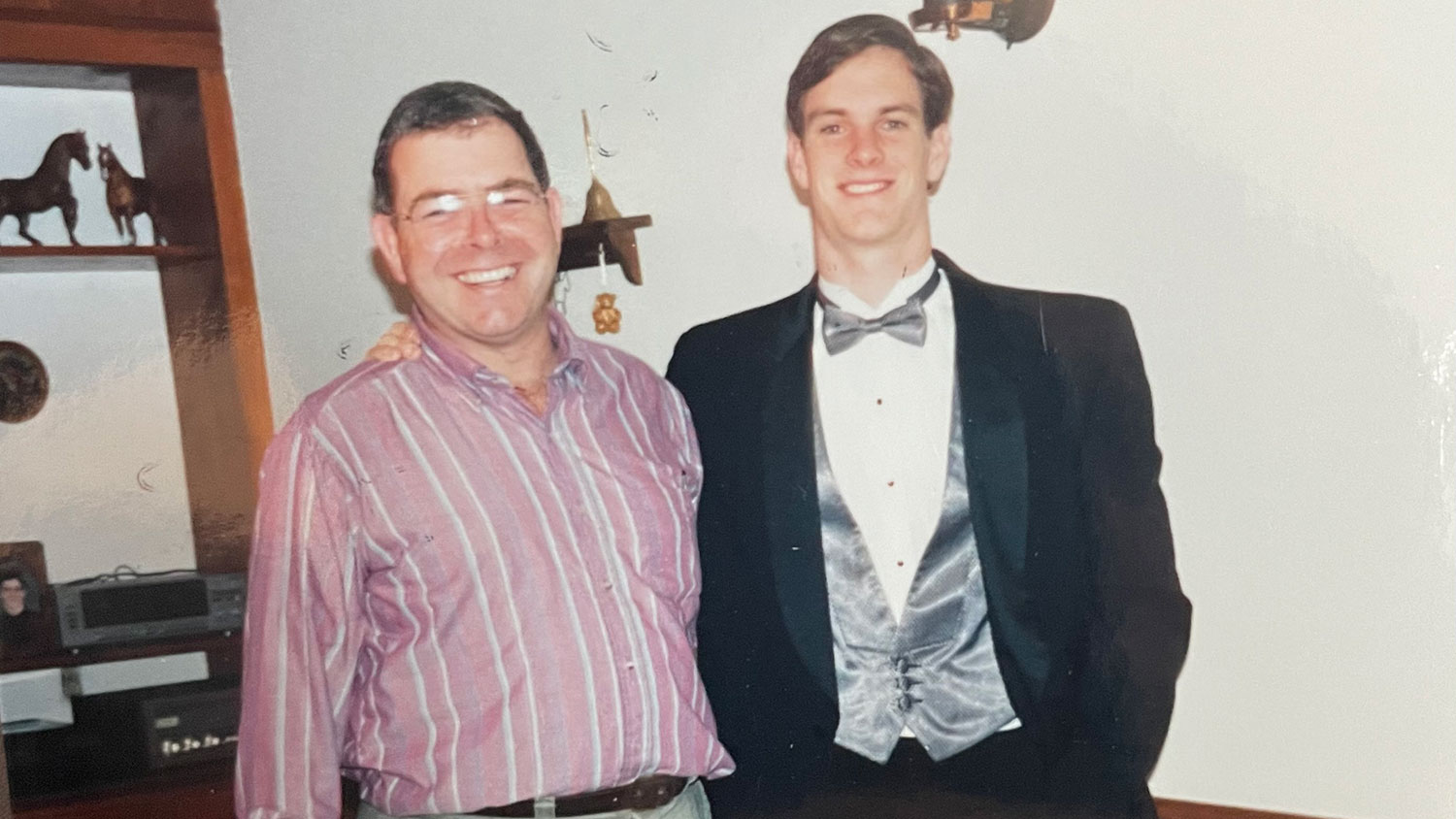Faculty Research Award Recipient Profile: Eda Kemahlioglu-Ziya

The Poole College Board of Advisers has provided financial support for a new awards program recognizing faculty for research productivity. These outstanding scholars, named in May, receive a monetary award and carry the honorary title of Poole Advisory Board Scholar for the 2017-18 academic year. Meet one of them: Eda Kemahlioglu-Ziya, associate professor, supply chain management, Department of Business Management.
Eda Kemahlioglu-Ziya
Associate Professor, Supply Chain Management
Ph.D., Industrial and Systems Engineering (supply chain management),
Georgia Institute of Technology, 2004
- Joined Poole College in August 2013.
- Poole College 2017 Summer Research Award Recipient
- Directory page
Q. What are your research interests?
Broadly, my area of research is supply chain management. Under this broad umbrella I have two research streams. In one, I study more traditional supply chain issues such as inventory and capacity management, designing contracts that incentivize firms to collaborate on sharing inventory and capacity. Recently, more of my research focus has been on sustainable supply chain management. I am specifically interested in how legislation such as product take-back laws affect the operations practices of firms. For example, in one paper we studied how end-of-use product take-back, remanufacturing and recycling affect the initial quality decisions of an electronics manufacturer. In a series of papers, we studied how firms can comply with product-take back legislation in the most cost-effective way, how the presence of such legislation affects the competition in the industry, etc.
Q. What drew you to this line of research? What drives your passion for it?
My background is in engineering. I have always been interested in understanding how things run and how to make them more efficient. As I always tell my students on the first day of classes, all for-profit firms need to provide a product – either a tangible one or a service – to their consumers to make money and stay in business. Supply chains make this happen, and understanding how different supply chains run and researching ways to make them run better excite me. More recently, part of making them run better involves making them environmentally more sustainable and working in this line of research makes me feel better about myself. Again, at the end of the day, we can’t expect for-profit firms to take many actions that would cause them to lose money, so if we want them to run their supply chains in a way that does not harm the environment, we must finds ways to reduce the associated costs and/or help them even increase their profits while taking these actions. I find working in this area a fascinating challenge.
Q. What are your intentions for your research? Problems to solve, opening the door to new research/paths of knowledge, ways of looking at/doing things? If your research is done collaboratively, you can touch on that as well.
I plan to continue my research in the two broad streams I mentioned above. I currently have a project (with Olga Perdikaki at the University of South Carolina) examining when sourcing from a downstream competitor may be more profitable than sourcing from an independent supplier. In another project, with my Poole colleague Seb Heese, we are studying the operational causes of shortage in pharmaceutical supply chains. In regards to sustainable supply chain management, I am interested in better understanding the environmental engineering aspects of reuse, remanufacturing and recycling electronical and electronic products. So, I have been collaborating with Ranji Ranjithan, Joe DeCarolis and Ph.D. student Megan Jaunich from the Department of Construction, Civil and Environmental Engineering at NC State.
Q. How does your research impact your teaching? If not the content directly, then through what you personally gain through the research process.
For my first three years at Poole, I taught MBA core operations management courses in the various MBA programs we offer. One of the changes I made was to introduce a session on sustainability in operations management where I shared some of my research insights with my students. Now I am teaching supply chain management and logistics to our undergrads and MBAs which is more closely aligned with my research. I try to incorporate both my research (not the technical details but managerial insights, conversations with practitioners, etc.) as well as research I follow at conferences and workshops in my classes.


